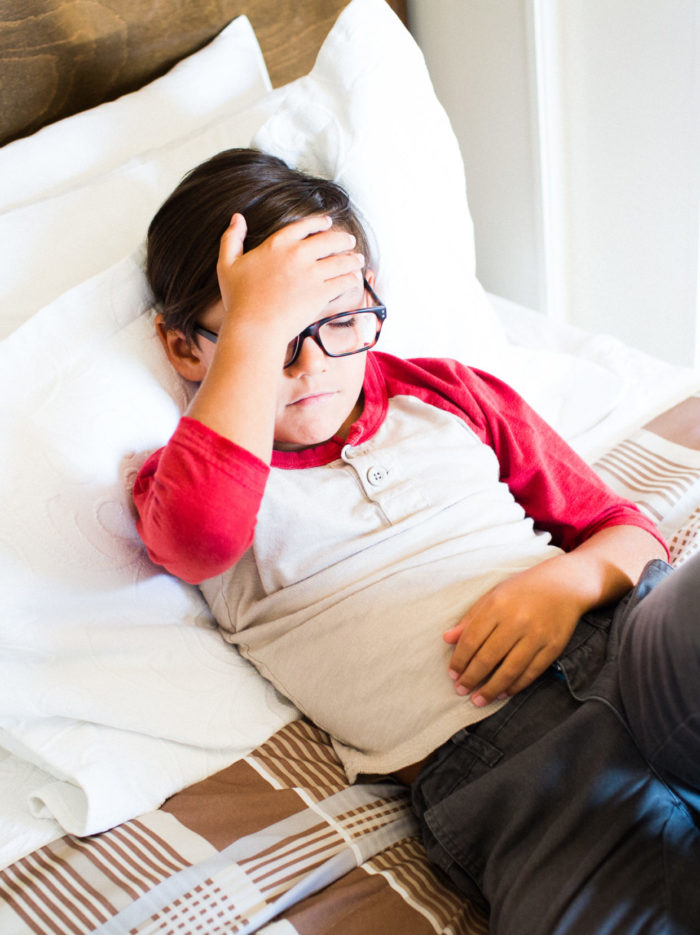Medically reviewed by Dr. Harshul Zaveri, a CHOC expert in pediatric neurology and headaches
Understanding stiff neck in children
A stiff neck without other symptoms is often caused by minor muscle strain—like from sleeping in an odd position or looking down at a phone or tablet for too long. In most cases, a little rest, gentle movement and home care can help it feel better in no time. Neck relaxation and stretching exercises can also be helpful.
However, if the stiff neck comes after a fall or injury—or shows up along with a fever and headache—it could be a sign of something more serious. For example, meningitis is an infection of the covering of the brain and spinal cord that can often present with fever, neck stiffness, and headache.
How is a stiff neck treated?
If your child has a stiff or sore neck without an injury, fever, or other symptoms, you can usually treat the problem at home.
- Place a warm, moist cloth on your child’s neck for about 20 minutes every few hours to help ease the discomfort.
- Give acetaminophen or ibuprofen for pain as directed (just remember, ibuprofen isn’t safe for babies under 6 months).
- Call the doctor if the symptoms don’t improve over a few days, persist or worsen.
When should I call the doctor for a stiff neck?
Call the doctor right away if your child has a stiff neck and:
- Had a recent injury or concern that they were bitten by a tick (Note: This would be very unusual in Orange County)
- Has a fever or recent fever
- Seems very tired or drowsy
- Is very cranky or difficult to console
- Has a lasting headache
- Is also vomiting
- Has a skin rash or has flu-like symptoms
- Is an infant and has a weak suck, high-pitched cry, or a bulging soft spot on the skull
Can you prevent stiff necks?
To avoid neck pain from sore muscles:
- Encourage kids not to look down at their phones or electronic devices too long. If your child requires a computer for schoolwork, make sure to keep the screen at eye level for a more ergonomic position. It’s important to take breaks.
- Make sure your child’s sleeping area is comfortable. Check that their pillow isn’t too tall or too flat. A lumpy pillow or toys in the bed can lead to poor sleep posture.
- Ensure you are using an appropriate mattress for age.
To avoid more serious causes of neck pain:
- Keep your child up to date on all recommended vaccines, especially the meningococcal vaccine, which protects against bacterial meningitis.
- Help kids avoid bites from ticks that may carry meningitis:
- Look up if areas you are visiting are high risk for ticks
- Use insect repellent (with no more than 10% to 30% concentration of DEET).
- Check kids and pets for ticks after they’ve been outdoors.
- Dress children in long pants and long sleeves in high-risk outdoor areas.
Get more expert health advice delivered to your inbox monthly by subscribing to the KidsHealth newsletter here.

Learn more about CHOC’s Neuroscience Institute
CHOC Hospital was named one of the nation’s best children’s hospitals by U.S. News & World Report in its 2025-26 Best Children’s Hospitals rankings and ranked in the neurology and neuroscience specialties.





